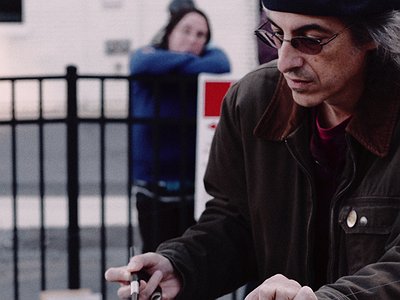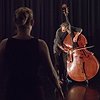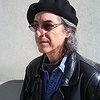Part 3
With more and more musicians creating than ever and more and more of these creations being released, what does this mean for you as an artist in terms of originality? What are some of the areas where you currently see the greatest potential for originality and who are some of the artists and communities that you find inspiring in this regard?
I don’t really think of myself in terms of originality, really. Instead, I think of myself as making my own contribution to a continuing tradition. For that reason, community is a very important thing—after all, a tradition is a community extending across time. Here in the Washington DC area we have a very active, cooperative community of experimental musicians which has been a great source of inspiration. There are no artificial barriers—acoustic musicians play with electronic musicians, people who came up on punk or rock or jazz or classical music all play together, performance artists and dancers collaborate with musicians—it’s like a huge collective where everyone plays with everyone else. Naturally there’s a lot of cross-pollination going on, a lot of being exposed to new or other ways of approaching sound just in the natural course of things.
How would you define the term “interpretation”? How important is it for you to closely work together with the artists performing your work?
The question of interpretation really is an important one, especially to a composer of scores with a significant element of performer discretion. “Interpretation” I define as realizing the meaning of the score based on one’s understanding of the possibilities contained within it. Interpretation is always a function of understanding the score, of the performer seeing it as containing possibilities that are his or her possibilities. In a way, it’s a form of appropriating the score in the sense of making it one’s own. When I write for others—especially for solo performers--I very deliberately try to make the score something that will reveal possibilities specific to that performer. The sound rows I mentioned a little earlier are good examples of that. Usually I’ll write one for someone I’ve previously played with quite a lot or listened to quite a lot—to that extent, working together with the performer on the score is something that’s done—that has been done—over a long period of time even before the score is conceived.
The effect of a piece doesn't merely depend on the performance of the musicians, but also on the place it is performed at. How do you see the relationship between location and sound? In how far do you feel the current system of concert halls is still the right one for your music – or for contemporary music in general?
The relationship between location and sound—the deliberate sounds of the performance—is inevitably one of mutual influence. The acoustics of a place are going to have an effect on the music, as are the ambient sounds surrounding the music, especially if the music has been made to be open to those sounds to begin with. My music is a kind of chamber music, for small environments like galleries and lofts or spaces as intimate as a living room. But it’s also been performed outdoors—the largest and least controllable concert hall imaginable! In general it seems to me that much contemporary music is being written or otherwise intended for performance outside of the concert hall, at least in part to take advantage of the unique properties—acoustic, architectural, environmental, or what have you—that any given space will have.
What's your view on the role and function of music as well as the (e.g. political/social/creative) tasks of composers today - and how do you try to meet these goals in your work?
Assuming that music is a tradition—or multiplicity of traditions—it would seem that the composer’s situation is such as to engage, assimilate, vary and transmit the web of meanings always already there in music as practiced or imagined at this time and in this place. It comes back to interpretation, to seeing and realizing one’s own possibilities as a composer from within the given that constitutes music at any particular time. Certainly that’s how I see my own position within the tradition of experimental music.
Do you have a musical vision that you haven't been able to realise for technical or financial reasons – or an idea of what music itself could be beyond its current form?
Fortunately no, I’ve never been frustrated by a lack of means to do what I’ve tried to do. I’ve had experiments that have failed, but it’s just in the nature of experiments to do that at times. And failure can be healthy when looked at the right way; one can gain something from it.
Music will always evolve, whether in terms of instrumental and compositional techniques, equipment (and here I would include available sonic materials), audience understanding—and in other ways I can’t imagine. I can only hope to be happily surprised and challenged by it, whatever form it takes.







